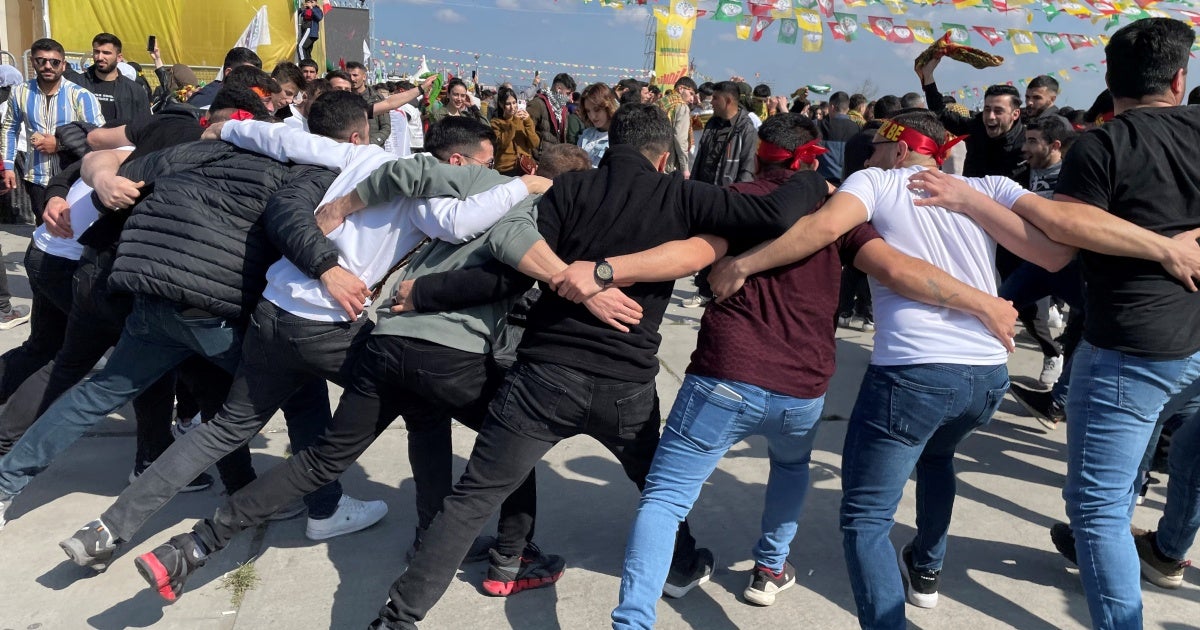Summer is here and it’s the season of wedding parties throughout Türkiye. But for some Kurdish men, women, and children, joyful dancing and singing of Kurdish political folk songs at wedding parties or elsewhere has ended in arrest and charges of “spreading terrorist propaganda.” This crime is punishable with up to five years in prison. The actions of the authorities in detaining and criminalizing people for such lawful activities constitutes a clear abuse of arrest powers.
A TikTok video of women dancing a halay — a line dance common in Türkiye — at a wedding party to a song mentioning guerilla fighters became the pretext for police to detain six people in the town of Kurtalan in the Siirt province in southeast Türkiye on July 26. The Siirt governor issued a statement on social media announcing the detentions and pledging that the “struggle against terrorist organizations will continue with perseverance and determination.” Two women and three girls were remanded by the court to pretrial detention. A day before, in the southern city of Mersin, police detained eight men and one boy on the basis of a TikTok video showing people dancing a halay to Kurdish songs weeks earlier. A court ruled that the nine be placed in pretrial detention. Arrests in other cities and towns including Istanbul and most recently Osmaniye have followed, and at least 34 people have spent weeks in pretrial detention before appearing in court.
The case of those arrested in Mersin is yet to reach trial, but the three women and two girls in the Kurtalan case face their first trial hearing in Siirt on August 16. The prosecutor should request the immediate release and acquittal of all five.
The European Court of Human Rights has ruled that singing popular folk songs or poems, shouting generic slogans, including at public gatherings, or referencing the 40-year insurgency of the armed Kurdistan Workers’ Party (PKK) against the Turkish military, is protected speech. The content of the songs and slogans from the wedding parties and elsewhere neither incites violence nor creates an imminent danger to individuals that could warrant criminal charges.
Turning Kurdish wedding parties into crime scenes by arresting and prosecuting guests and musicians is only the latest example of how for decades the Turkish authorities have perverted the criminal justice system to target legitimate activities and political expression by Kurds.


